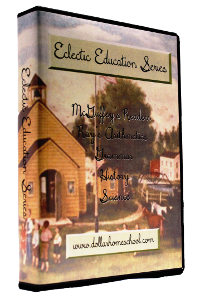Art is in our blood. We have artistic/creative-types on both sides of our family, and some have been quite successful. Five out of six of our grown children are in some way involved in Graphic Design, two of them make a good living at it. All of our children began to sketch at an early age; the humorous thing is that, if we have to correct them, we just take away their drawing privileges for a day!
So the other day, when we were all working on a design project, the most perfect thing for us to keep the younger ones happy was to put in a DVD from See the Light. This particular one was entitled, God's Runaway, which covers the story of Jonah. The girls sat in the family room with some supplies and followed along with the DVD.

When I later asked the girls what they liked about the See the Light video, the oldest of the three, who is nine-years-old, said she loved how they made things glow, and that she learned about curves, how to hold her pencils better, and about shadowing. This meant so much to her, since she draws probably about three hours a day!
My children have learned how to draw and create intuitively, which has helped them to be creative problem-solvers, but I think it is important that they also have some time for actual instruction in methods and technique from those who are more skilled. I know that the few tips that they have learn on these wonderful art instruction DVDs has helped tremendously! I highly recommend them to you. If you would like a chance to win this wonderful learning tool for your own family, just click on the link below:













































